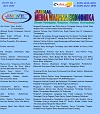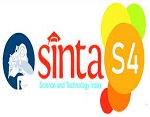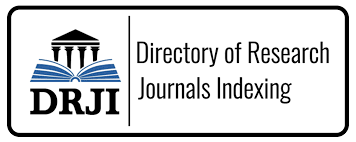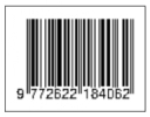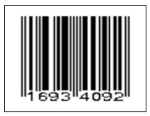Orientasi Etika, Komitmen Profesional Dan Minat Auditor Melakukan Whistleblowing
DOI:
https://doi.org/10.31851/jmwe.v19i1.8009Abstract
ABSTRAK
Â
Tujuan penelitian ini untuk mengetahui pengaruh etika idealisme, etika relativisme, dan komitmen profesional auditor terhadap minat akuntan publik melakukan whistleblowing. Data primer diperoleh melalui kuesioer tertutup yang disebarkan kepada auditor yang bekerja pada KAP di Kota Palembang. Sampel diambil dengan menggunakan teknik sampling jenuh, yaitu dimana seluruh populasi dijadikan sampel, sampel didapat sebanyak 39 responden.. Hasil analisis regresi linier berganda membuktikan secara parsial variabel etika idealisme mempengaruhi minat melakukan whistleblwoing dengan hasil t-hitung sebesar 4.569 dengan tingkat signifikansi 0,000. Sedangkan variabel etika relativisme dan komitmen profesional tidak berpengaruh signifikan terhadap minat melakukan whistleblowing, dengan hasil t-hitung masing-masing sebesar 0.012 dengan tingkat signifikansi 0.991 dan 1.131 dengan tingkat signifikansi 0.286. Hasil analisis data menunjukkan  F-hitung sebesar 11.596 lebih besar dari F tabel sebesar 2,98 yang menunjukkan model penelitian ini layak digunakan dalam memprediksi nilai minat auditor melakukan whistleblowing.
Kata Kunci : Etika Idealisme, Etika Relativisme, Komitmen Profesional, Minat Melakukan
Whistleblowing.
Â
ABSTRACT
Â
The purpose of this study was to determine the effect of ethical idealism, ethical relativism, and professional commitment of auditors on the interest of public accountants to do whistleblowing. Primary data was obtained through a closed questionnaire which was distributed to auditors working at KAP in Palembang City. The sample was taken using a saturated sampling technique, namely where the entire population was sampled, the sample was obtained as many as 39 respondents. The results of multiple linear regression analysis partially prove that the ethical idealism variable affects the interest in doing whistleblowing with a t-count of 4,569 with a significance level of 0.000. While the ethical relativism and professional commitment variables have no significant effect on the interest in doing whistleblowing, with t-count results of 0.012 with a significance level of 0.991 and 1.131 with a significance level of 0.286, respectively. The results of data analysis show that the F-count of 11,596 is greater than the F table of 2.98, which indicates that this research model is feasible to use in predicting the value of auditors' interest in whistleblowing.
Â
Keywords: Idealism Ethics, Relativism Ethics, Professional Commitment, Interest in Doing
           Whistleblowing.References
Ayu Wardani, C., & Sulhani, S. (2017). Analisis Faktor-Faktor Yang Mempengaruhi Penerapan Whistleblowing System Di Indonesia. Jurnal ASET (Akuntansi Riset), 9(1), 29. https://doi.org/10.17509/jaset.v9i1.5255
Bierstaker, J. L., Brody, R. G., & Pacini, C. (2004). Accountants ’ perceptions regarding fraud detection and prevention methods. https: //doi.org /10.1108/02686900610667283
Effendi, A., & Nuraini, N. (2019). Pengaruh Perlindungan Hukum, Orientasi Etika Idealisme, Orientasi Etika Relativisme Dan Retaliasi Terhadap Intensi Whistleblowing (Survei Pada Mahasiswa Universitas Negeri Di Provinsi Aceh). Jurnal Ilmiah Mahasiswa Ekonomi Akuntansi, 4(3), 504–519. https://doi.org/10.24815/jimeka.v4i3.12586
Indriasih, D., & Sulistyowati, W. A. (2021). The Effects of Ethical Orientation and Moral Intensity on the Ethical Decision of an Auditor. Jurnal Aset (Akuntansi Riset), 13(2), 186–196.
Janitra, wimpi abhirama. (2017). Pengaruh Orientasi Etika, Komitment Profesional, Komitment Organisasi, dan Sensitivitas Etis terhadap Internal Whistleblowing (Studi Empiris pada SKPD Kota Pekanbaru ). JOM Fekon, Vol. 4(1), 1208–1222.
Joneta, C. (2016). Pengaruh Komitmen Profesional Dan Pertimbangan Etis Terhadap Intensi Melakukan Whistleblowing: Locus of Control Sebagai Variabel Moderasi. JOM Fekon, 3(1), 735–748. www.computesta.com
Poluakan, M. J., Saerang, D. P. E., & Lambey, R. (2017). Analisis Persepsi Atas Faktor-Faktor Yang Berpengaruh Terhadap Keinginan Seseorang Menjadi Whistleblower (Studi Kasus Pada Mahasiswa Jurusan Akuntansi Fakultas Ekonomi Dan Bisnis Universitas Sam Ratulangi). Jurnal EMBA: Jurnal Riset Ekonomi, Manajemen, Bisnis Dan Akuntansi, 5(2), 2695–2705.
Pratolo, S., Sadjiman, V. P., & Sofyani, H. (2020). Determinants of Whistleblowing Intention of Employees in Universities: Evidence from Indonesia. Riset Akuntansi Dan Keuangan Indonesia, 5(1), 92–101. https://doi.org/10.23917/reaksi.v5i1.9443
Rianti, D., Nasir, A., & Hariyani, E. (2017). Pengaruh Komitmen Profesional Auditor Terhadap Intensi Melakukan Whistleblowing dengan Retaliasi sebagai Variabel Moderating (Studi Empiris pada BRI Provinsi Riau). JOM Fekon, 4(1), 1531–1543.
Rosalia, L. (2017). Persepsi Mahasiswa Akuntansi Terhadap Tindakan Whistleblowing dalam Upaya Pencegahan dan Pendeteksias Fraud. Jurnal Audit Dan Akuntansi Fakultas Ekonomi Dan Bisnis Universitas Tanjungpura, 7(1), 19–48.
Satyasmoko, A., & Sawarjuwono, T. (2020). Sistem Whistleblowing dalam Penanganan Kasus Penyelewengan Etika. Jurnal Akuntansi Dan Pajak, 22(1), 1–18.
Syofyan, E. (2021). Corruption from Fraud Theory Perspective. JURNAL AKUNTANSI, EKONOMI Dan MANAJEMEN BISNIS, 9(2), 165–174. https://doi.org/10.30871/jaemb.v9i2.2955
Tjan, J. S., Sukoharsono, E. G., Rahman, A. F., & Subekti, I. (2019). An analysis of the factors which influence dysfunctional auditor behavior. Problems and Perspectives in Management, 17(1), 257–267. https://doi.org/10.21511/ppm.17(1).2019.22
Urumsah, D., Syahputra, B. E., & Wicaksono, A. P. (2018). Whistle-blowing Intention: The Effects of Moral Intensity, Organizational and Professional Commitment. Jurnal Akuntansi, 22(3), 354. https://doi.org/10.24912/ja.v22i3.393
Vegirawati, T., Yusnaini, & Ningsih, E. K. (2019). Customer Attitude and Intention Toward Sharias-Compliant Hotels. Journal of Islamic Monetary Economics and Finance, 5(3), 237–256.
Violetta, G. P., & Kristianti, I. (2021). Pengungkapan Kecurangan di Lembaga Kemahasiswaan. Reviu Akuntansi Dan Bisnis Indonesia, 5(1), 26–37. https://doi.org/10.18196/rabin.v5i1.11300
Winata, S., Kusnawan, A., Limajatini, & Simbolon, S. (2020). Individual Ethical Decision Making of Accounting Lecturers Between Idealism and Relativism in Tangerang. 1st International Multidisciplinary Conference on Education, Technology, and Engineering, 410(Imcete 2019), 229–231. https://doi.org/10.2991/assehr.k.200303.055
Yahya, N., & Damayanti, F. (2021). Faktor-Faktor yang Mempengaruhi Whistleblowing Intention dengan Retaliasi Sebagai Variabel Moderasi. Akuntabilitas, 14(1), 43–60. https://doi.org/10.15408/akt.v14i1.20803
Downloads
Published
Issue
Section
License
The copyright of the received article shall be assigned to the publisher of the journal licensed under a Creative Commons Attribution-NonCommercial 4.0 International License in line with the license, authors and any users (readers and other researchers) are allowed to share and adapt the material only for non-commercial purposes. In addition, the material must be given appropriate credit, provided with a link to the license, and indicated if changes were made. If authors remix, transform or build upon the material, authors must distribute their contributions under the same license as the original.

